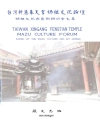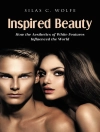Featuring comprehensive updates and additions, the second
edition of Understanding Theories of Religion explores the
development of major theories of religion through the works of
classic and contemporary figures.
* A new edition of this introductory text exploring
the core methods and theorists in religion, spanning the
sixteenth-century through to the latest theoretical trends
* Features an entirely new section covering religion and
postmodernism; race, sex, and gender; and religion and
postcolonialism
* Examines the development of religious theories through
the work of classic and contemporary figures from the history of
anthropology, sociology, psychology, philosophy, and theology
* Reveals how the study of religion evolved in response
to great cultural conflicts and major historical events
* Student-friendly features include chapter
introductions and summaries, biographical vignettes, a timeline, a
glossary, and many other learning aids
Spis treści
Preface to the Second Edition: Understanding, Instead of Just Thinking vii
1 Introduction: Understanding Theories of Religion is Better than Just Being Critical 1
Part I The Prehistory of the Study of Religion: Responses to an Expanding World 7
2 Jean Bodin and Herbert of Cherbury: True Religion, Essential Religion, and Natural Religion 9
3 Understanding Religion Also Began with Trying to Understand the Bible 19
Part II Classic Nineteenth-Century Theorists of the Study of Religion: The Quest for the Origins of Religion in History 31
4 Max Müller, the Comparative Study of Religion, and the Search for Other Bibles in India 33
5 The Shock of the 'Savage’: Edward Burnett Tylor, Evolution, and Spirits 45
6 The Religion of the Bible Evolves: William Robertson Smith 55
7 Setting the Eternal Templates of Salvation: James Frazer 65
Part III Classic Twentieth-Century Theorists of the Study of Religion: Defending the Inner Sanctum of Religious Experience or Storming It 75
8 Understanding How to Understand Religion: 'Phenomenology of Religion’ 77
9 How Religious Experience Created Capitalism: Max Weber 93
10 Tales from the Underground: Freud and the Psychoanalytic Origins of Religion 106
11 Bronislaw Malinowski and the 'Sublime Folly’ of Religion 118
12 Seeing God with the Social Eye: Durkheim’s Religious Sociology 129
13 Mircea Eliade: Turning Back the 'Worm of Doubt’ 142
Part IV Liberation and Post-Modernism: Race, Gender, Post-Colonialism, the Discourse on Power 155
14 From Modernism to Post-Modernism: Mostly Michel Foucault 157
15 Theorizing Religion with Race in Mind: Prophecy or Curiosity? 171
16 Sex/Gender and Women: Feminists Theorizing Religion 189
17 Another 'Otherness’: Post-Colonial Theories of Religion 216
18 Conclusion: Being 'Smart’ about Bringing 'Religion’ Back In 241
Index 254
O autorze
Ivan Strenski is Holstein Family and Community Distinguished Professor of Religious Studies at the University of California, Riverside, USA. He served as North American editor-in-chief of the international journal Religion from 1979 to 2004, and is the author of numerous books, including Why Politics Can’t Be Freed from Religion (Wiley-Blackwell, 2009), Émile Durkheim (ed. 2009), The New Durkheim: Essays on Philosophy, Religious Identity and the Politics of Knowledge (2006), Thinking about Religion: A Reader (ed., Wiley-Blackwell, 2006), Theology and the First Theory of Sacrifice (2003), and Contesting Sacrifice: Religion, Nationalism and Social Thought (2002).












